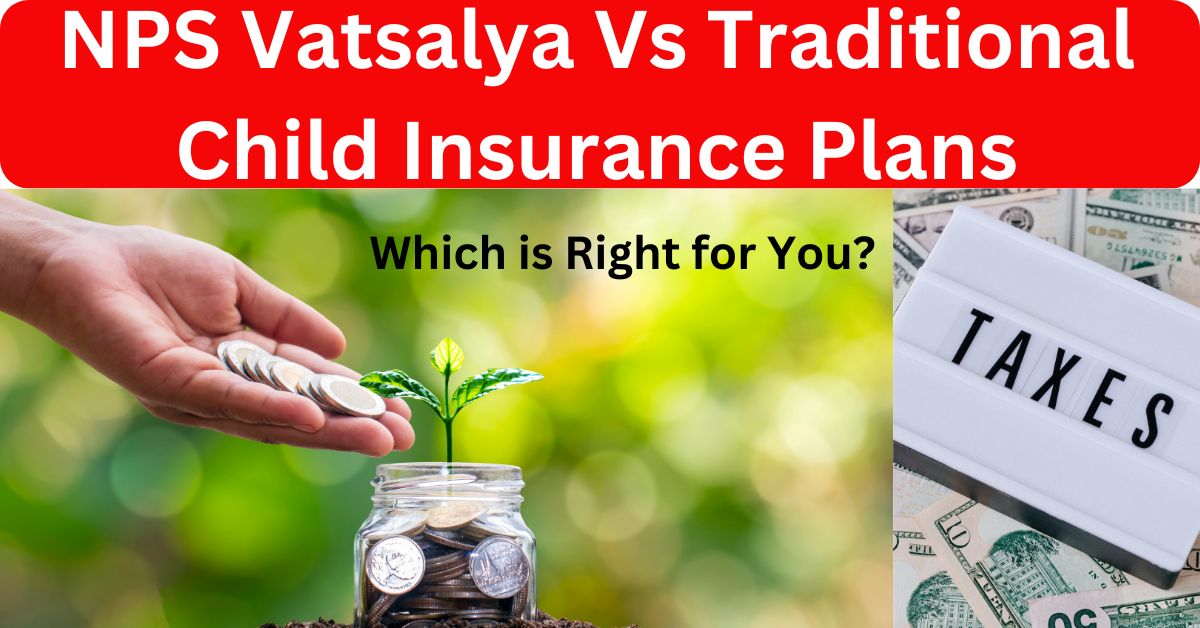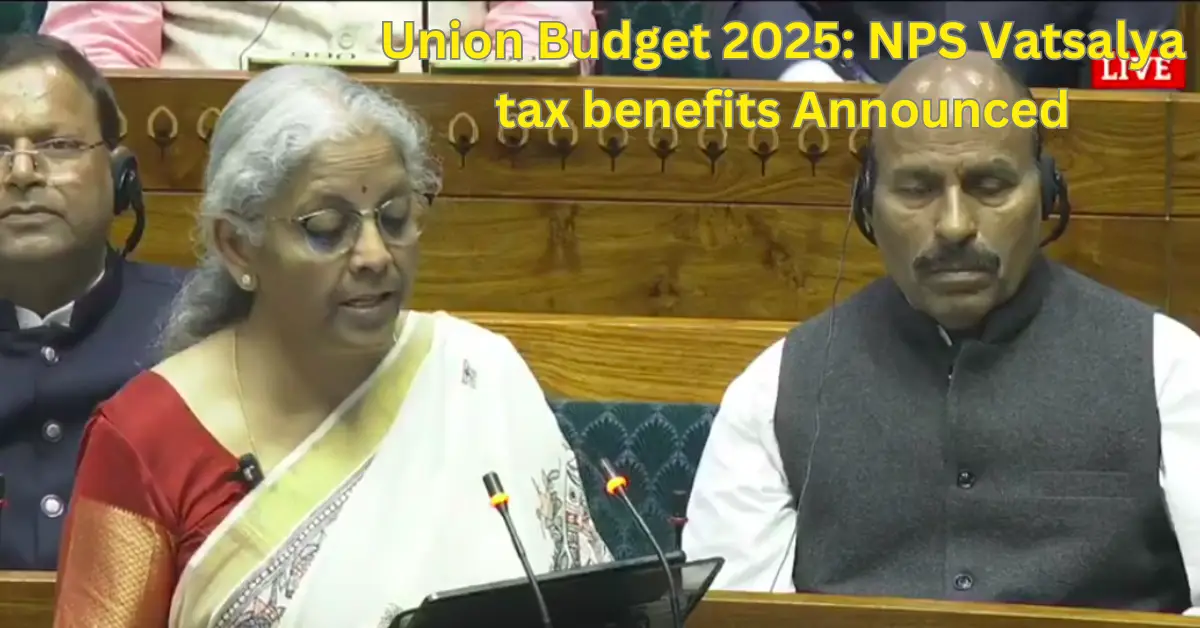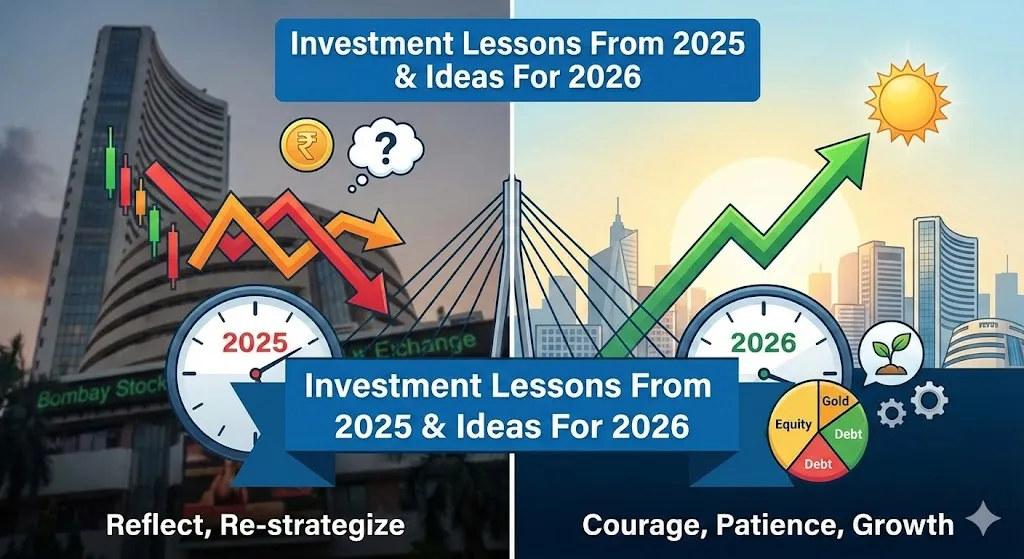Planning your child’s financial future? Discover the key differences between NPS Vatsalya and traditional child insurance plans. This comprehensive guide helps you determine the best option for your needs.
NPS Vatsalya Scheme
Ensuring a secure and prosperous future for your child is a top priority for any parent. In India, two prominent financial instruments cater specifically to this need: the NPS Vatsalya scheme, a new entrant, and the more established traditional child insurance plans. This comprehensive analysis aims to dissect the intricacies of both, equipping you with the knowledge to make an informed decision.
NPS Vatsalya: A New Avenue for Child’s Financial Security
The NPS Vatsalya scheme, introduced in Budget 2024, marks a significant stride towards encouraging early retirement planning for children. Here’s an in-depth look at its features and benefits:
What is NPS Vatsalya?
The NPS Vatsalya scheme allows parents or guardians to open a National Pension System (NPS) account in the name of their minor child. This scheme enables consistent contributions towards building a substantial retirement corpus for the child, ensuring a financially secure future.
Key Features of NPS Vatsalya:
- Early Bird Advantage: Starting early allows the invested amount to compound over a longer period, potentially leading to a more significant retirement corpus.
- Flexibility and Portability: The account remains unaffected by changes in employment or location, ensuring continuous contributions towards the retirement fund.
- Tax Advantages: Contributions made towards the NPS Vatsalya scheme qualify for tax deductions, reducing the overall tax burden.
- Seamless Transition: Upon the child turning 18, the account seamlessly transitions into a standard NPS account, enabling independent management of retirement savings.
Traditional Child Insurance Plans: Providing Financial Protection and Savings
Traditional child insurance plans have long served as a popular choice for parents seeking a blend of financial protection and savings for their children. Let’s delve into their characteristics:
Understanding Traditional Child Insurance Plans
These plans typically combine life insurance coverage for the parent with an investment component earmarked for the child’s future. In the unfortunate event of the parent’s demise, the plan provides a death benefit, ensuring the child’s financial well-being.
Key Features of Traditional Child Insurance Plans:
- Life Insurance Coverage: Offers financial security to the child in case of the policyholder’s (parent’s) demise during the policy term.
- Maturity Benefit: Provides a lump sum payout at the end of the policy term, typically intended for the child’s higher education or marriage expenses.
- Premium Payment Flexibility: Offers various premium payment options to suit different budgets and financial situations.
- Additional Riders: Options to enhance coverage with riders like critical illness or accidental death benefits.
NPS Vatsalya vs. Traditional Child Insurance Plans: A Head-to-Head Comparison
To make a well-informed decision, it’s crucial to compare these two financial instruments across key parameters:
| Feature | NPS Vatsalya | Traditional Child Insurance Plans |
|---|---|---|
| Objective | Building a retirement corpus for the child | Life insurance coverage for parent + child savings |
| Returns | Market-linked (potentially higher, but volatile) | Guaranteed (generally lower) |
| Liquidity | Limited, funds locked until retirement | May offer partial withdrawals or loan facilities |
| Tax Benefits | Contributions eligible for tax deductions | Premiums and maturity benefits may be tax-efficient |
Which One Should You Choose?
The choice between NPS Vatsalya and a traditional child insurance plan hinges on individual financial goals, risk appetite, and investment horizon.
NPS Vatsalya might be suitable if:
- Your primary goal is building a sizable retirement corpus for your child.
- You are comfortable with market-linked returns and a longer investment horizon.
- Tax benefits are a significant consideration for you.
Traditional child insurance plans might be suitable if:
- You prioritize life insurance coverage for yourself to safeguard your child’s future.
- You prefer guaranteed returns and lower investment risk.
- You seek a financial instrument that offers some liquidity options.
FAQs about NPS Vatsalya and Child Insurance Plans
- Can I invest in both NPS Vatsalya and a traditional child insurance plan? Yes, you can invest in both schemes simultaneously to benefit from the advantages of each instrument.
- What happens to the NPS Vatsalya account if the parent passes away before the child turns 18? The account will continue, and a designated guardian can manage it until the child turns 18. Contributions can be made by the guardian or any well-wisher.
- Are there any penalties for withdrawing funds prematurely from NPS Vatsalya? Yes, withdrawals before the age of 60 are subject to specific rules and potential penalties, similar to a standard NPS account.
- Can I avail of a loan against my traditional child insurance policy? Yes, most traditional child plans offer loan facilities after a certain policy duration, providing limited liquidity.
- What factors should I consider when choosing a child insurance plan? Consider factors like your desired coverage amount, premium affordability, policy term, investment options, and claim settlement ratio of the insurer.
- What is the difference between a child insurance plan and a ULIP? While both offer investment and insurance components, child plans typically have a fixed benefit structure, whereas ULIPs offer flexibility in investment choices.
Click Here: NPS Vatsalya Calculator
Both offer valuable benefits
Both NPS Vatsalya and traditional child insurance plans offer valuable benefits for securing your child’s financial future. By carefully analyzing your requirements, risk tolerance, and financial goals, you can determine the most appropriate option for your family.
Remember, seeking advice from a qualified financial advisor can provide personalized guidance and help you make a well-informed decision.










